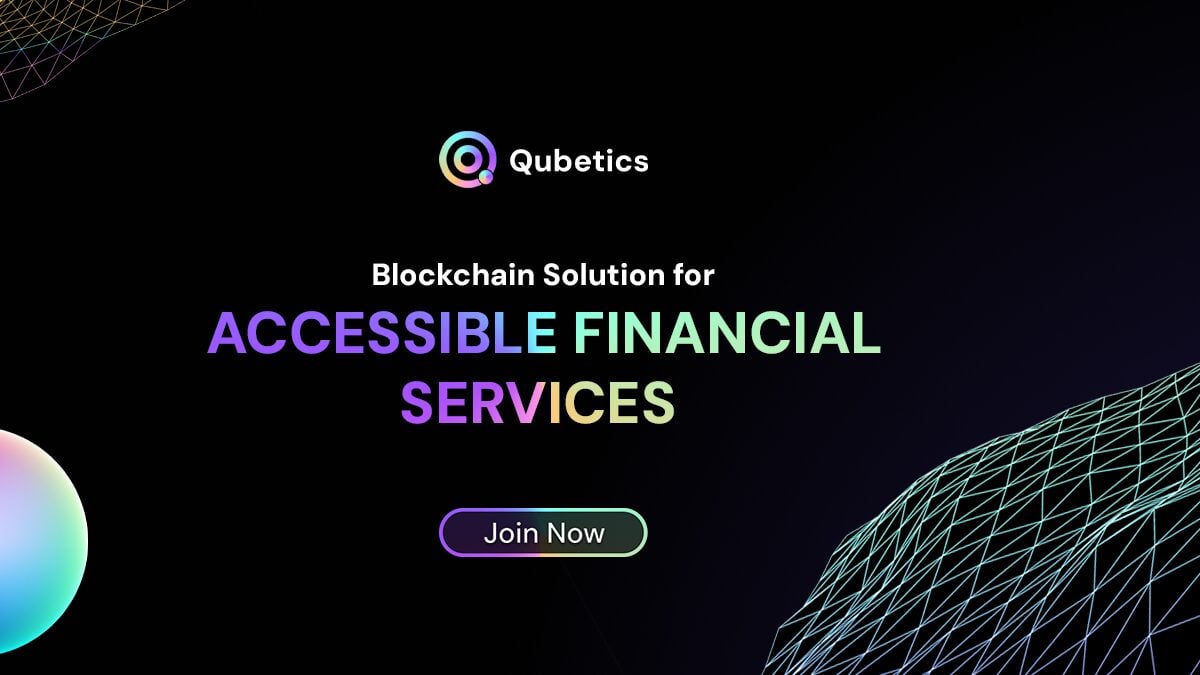Are you looking for the next big thing in crypto? As the digital currency domain continues to evolve, certain coins and tokens stand out for their unique applications and potential. From asset tokenisation to decentralised web solutions, these five projects—Qubetics, ICP, Polkadot, Solana, and XRP—are making waves and paving the way for new financial and technological innovations. Here’s why each of these coins deserves your attention and how they reshape the blockchain world.
1. Qubetics ($TICS): Leading the Future of Asset Tokenisation
Qubetics is revolutionising asset tokenisation by turning real-world assets—like real estate, art, and intellectual property—into tradable digital tokens on the blockchain. This enables fractional ownership, allowing investors to affordably own portions of valuable assets. Qubetics ensures transparency and security by recording every transaction immutably on the blockchain, giving investors full traceability. Through its marketplace, tokenised assets can be bought, sold, or traded easily, significantly increasing liquidity compared to traditional asset ownership.
The current Qubetics presale has generated significant excitement.
In Phase 5, $TICS tokens are available at $0.015, though this price won’t last. With over $1.4 million raised and prices set to rise by 10% each weekend, this crypto presale price is expected to reach $0.25 at the end of the presale. And here’s the kicker: analysts predict that $TICS could soar to an astounding $15 post-launch. A $100 investment could grow to $93,914, while $500 might balloon to an impressive $469,572. The clock is ticking on this life-changing opportunity, so don’t miss your chance to join early!
2. Internet Computer (ICP): Decentralising the Web
Internet Computer Protocol (ICP) is tackling one of the internet’s most significant challenges—decentralisation. By allowing developers to build, host, and run decentralised applications (dApps) directly on its blockchain, ICP enables a truly decentralised web. This coin has drawn interest from companies and individuals, promising greater privacy, control, and freedom from traditional tech giants. ICP’s vision of a decentralised web infrastructure is compelling in an era where privacy concerns are paramount. With ICP, dApps are more secure and can operate without a centralised entity. This independence can lead to a transformative future for the internet, where individuals rather than corporations control user data and content.
3. Polkadot (DOT): Bridging Blockchain Networks
Polkadot has gained considerable traction for its unique approach to blockchain interoperability. It’s designed to connect multiple blockchains, allowing them to share information and communicate seamlessly. Through its “parachain” structure, Polkadot can link different blockchain networks, effectively overcoming the isolation that often hinders blockchain-based projects. This cross-chain interoperability can support many use cases, from DeFi and gaming to supply chain management. Polkadot’s impact could be massive, bringing previously siloed projects together and allowing data to flow freely across blockchains, unlocking new possibilities in the decentralised ecosystem.
4. Solana (SOL): Powering High-Speed Transactions
Solana is all about speed and efficiency. Known for its high throughput, the Solana blockchain can handle thousands of transactions per second with low fees, making it a strong competitor in the blockchain space. Its Proof of History (PoH) consensus mechanism enables fast processing times, essential for applications requiring quick response, like gaming and DeFi. The platform has become a go-to for developers who need a high-performance network to support large user bases. Solana’s unique combination of speed, low costs, and scalability has made it one of the most popular blockchains for developers and users.
5. XRP: Enhancing Cross-Border Payments
XRP, developed by Ripple Labs, has carved out a unique niche in the cryptocurrency world, focusing on streamlining cross-border payments. By offering a faster, more cost-effective alternative to traditional banking methods, XRP has gained traction with financial institutions worldwide. Unlike many other cryptocurrencies, XRP is primarily aimed at facilitating instant cross-border transactions, with settlement times of just seconds. Ripple’s partnerships with major banks and financial institutions have made XRP a widely recognised solution in the payment sector. With the potential to disrupt international payment systems, XRP is poised to remain a prominent platform as traditional financial institutions explore blockchain solutions.
Conclusion: A Diverse Future in Blockchain
The crypto market is rapidly evolving, and each project brings something unique. Qubetics is shaking up asset tokenisation with a presale that’s attracting investors. At the same time, ICP works toward a decentralised web, Polkadot bridges blockchain ecosystems, Solana powers high-speed transactions, and XRP redefines cross-border payments. Investing in these coins offers a chance to be part of the next wave of digital innovation. But if you’re seeking exponential returns, Qubetics may be the opportunity you don’t want to miss. With its presale still in motion and the potential for massive ROI, now is the time to act. Each of these projects represents the future of crypto, making 2024 an exciting year for both seasoned and new investors.
For More Information
Qubetics: https://qubetics.com
Telegram: https://t.me/qubetics
Twitter: https://x.com/qubetics





















